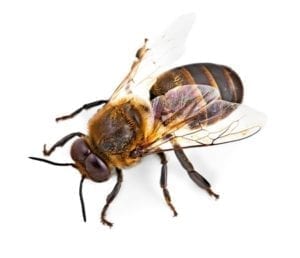Do Any Bees Produce Harmful Forms Of Honey?
The fact that bee populations are decreasing around the globe is bad news considering that many of our agricultural food products would not make it into our mouths if it were not for the many bee species that pollinate the world’s crops. In addition to providing the food necessary to keep the world fed, bees are also well known for producing one of the most cherished food items known to humankind–honey. Not only is honey delicious, but it is also relatively resistant to bacterial contamination. Honey contains high amounts of sugar, which keeps the water content within honey low. This ratio of sugar to water content in honey creates a “hypertonic” environment where microorganisms cannot easily form. Theoretically, as long as honey is stored within a cool environment and an air-tight container, it can last forever. Despite how unlikely it is for honey to contain dangerous forms of bacteria, some people have been known to develop the rare but serious disease known as “botulism” as a direct result of honey consumption. So how is it that honey can contain a form of disease-causing bacteria? Well, as it turns out, when honey does contain bacteria, bees are to blame.

When bees collect pollen, they obviously come into contact with various forms of bacteria within the environment. Soil and even dust particles can contain botulism-causing bacteria that bees acquire and then transmit into the honey they produce. This particular form of botulism-causing bacteria is known as Clostridium botulinum, and it originates from spores. On its own, Clostridium botulinum does not cause illness, but when this bacteria winds up in environments that are low in oxygen, like the stomach, it germinates and produces a harmful protein called “botulin.” Botulin is a neurotoxin that attacks the nerves. This results in difficulties breathing, paralysis and sometimes death. Luckily, the human digestive and immune system is sufficient for killing off botulin. However, botulin can survive to attack nerve cells in immunocompromised individuals. This is why HIV/AIDS sufferers and infants must avoid honey consumption.
Have you ever wondered if honey undergoes processing in order to make it fit for human consumption, similar to how the milk produced by cows is pasteurized before consumption as a safety precaution?






